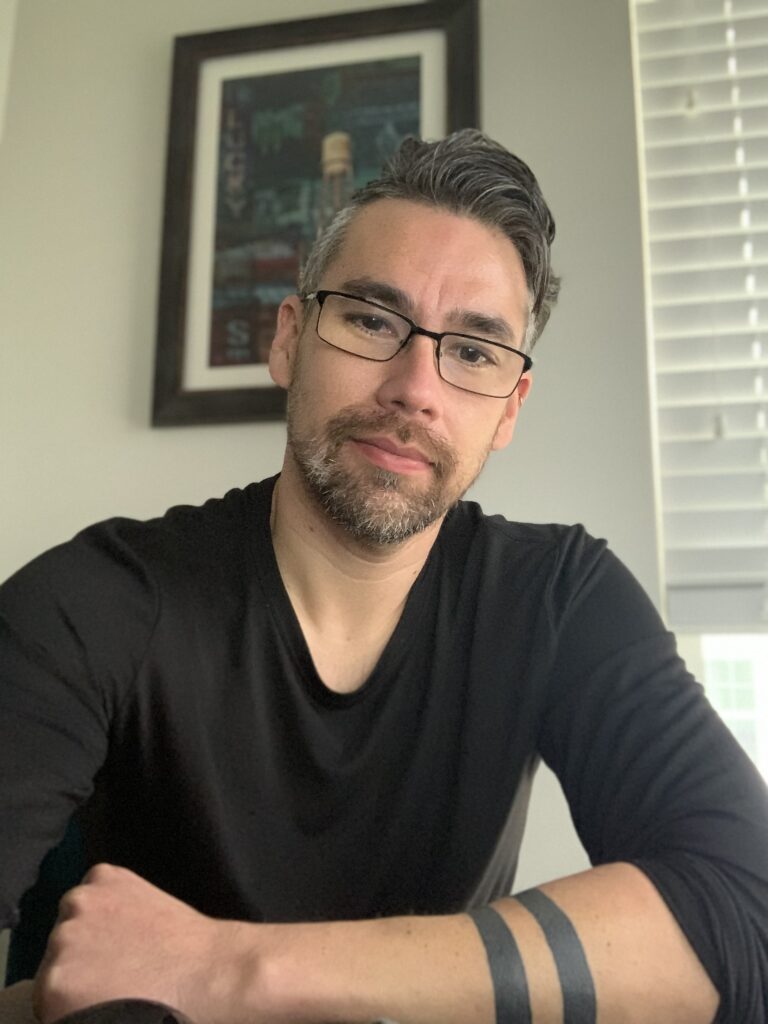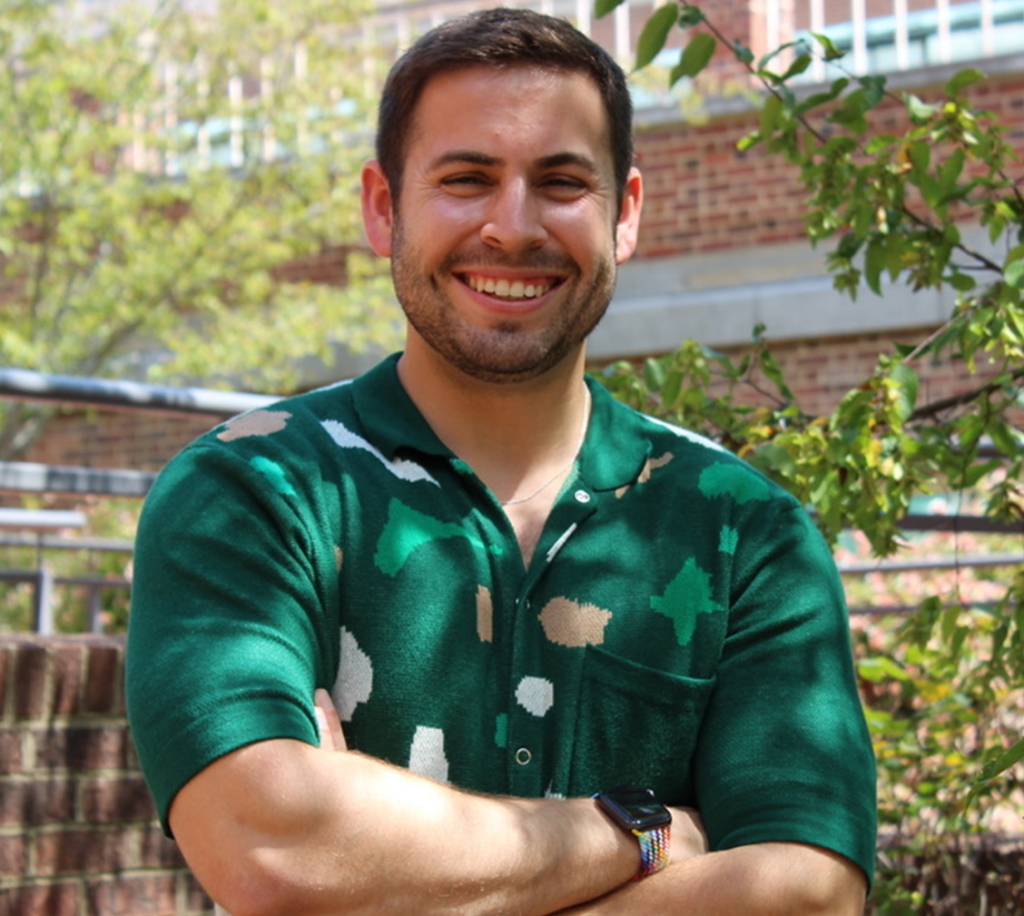About us
BACKGROUND

Compared to their heterosexual counterparts, queer individuals have higher rates of adverse outcomes, inclusive of psychological stressors, homelessness, and barriers to healthcare (Ecker, et al.; MacApagal, et al.; Mongelli, et al.; Zhao, et al.). Given these concerns, organizations such as Centers for Disease Control and Prevention, and the American Heart Association have led calls to further address health in queer individuals (CDC; Caceres, et al.).
The socioecological framework is used in public health research and action to: first, highlight the levels of influence that may affect the incidence and prevention of adverse health outcomes; and second, help to visualize the interconnectivity of the various levels. Further, the socioecological framework helps to identify areas of need that have yet to be attended to by prevention efforts. For queer individuals, factors that facilitate or hinder physical activity are not just relegated to disclosed identity markers such as sexual orientation and gender identity. Rather, factors across the socioecological framework play important roles. This includes: intrapersonal trauma (Ross, et al.; Schnarrs, et al.); interpersonal discrimination (Aparicio-Garcia, et al.); feelings of perceived safety within their neighborhoods; and legislation and cultural norms. As a result, research related to physical activity in queer individuals should examine the influence of these multiple levels of influence (Caceres, et al.).
WHO WE ARE
Our official bios are written below, but the best way to get to know us is to stop by any of our events, or send an email out to set up a time to chat.

Zachary Yukio Kerr, PhD, MPH (he/him/his/ no pronoun preference)
Dr. Kerr is the director of I-WERQ. Dr. Kerr is an Associate Professor in the Department of Exercise and Sport Science at the University of North Carolina, and serves as Core Faculty with the UNC Injury Prevention Research Center. Dr. Kerr completed an undergraduate degree in Communication and Spanish at the University of Washington (Seattle, WA) in 2004, and earned two Master’s degrees at The Ohio State University (Columbus, OH) in Journalism and Communication (2006) and Epidemiology (2010). Dr. Kerr obtained a doctoral degree in Epidemiology at the University of North Carolina at Chapel Hill in 2014, and previously served as the Director of the National Collegiate Athletic Association Injury Surveillance Program.
Dr. Kerr treats epidemiology as a toolbox of skills and has applied it to the field of social epidemiology, which the NIH defines as the “branch of epidemiology that focuses particularly on the effects of social-structural factors on states of health. Social epidemiology assumes that the distribution of advantages and disadvantages in a society reflects the distribution of health and disease.” Dr. Kerr’s research focuses on the multiple levels of influence that affect the incidence, identification, and management of adverse outcomes. Although recent research has focused primarily on concussion and exertional heat stroke, other research encompasses policy and organizational factors inclusive of occupational stress, coping strategies, and burnout. Dr. Kerr has also engaged in research and frontline prevention work with queer populations, including examining HIV/STD risk in men who have sex with men, burnout in HIV prevention staff, and coping strategies for individuals “coming out” as queer or HIV+. Dr. Kerr’s current work continues their focus on the multiple levels of influence in the exercise and sport science discipline by incorporating a queer theory lens to focus on populations and topics that are stigmatized and marginalized.
Dr. Kerr’s collaborations with numerous experts across multiple disciplines have resulted in the publication of over 250 research articles. In 2018, Dr. Kerr was the recipient of the New Investigator Award, awarded by the American College of Sports Medicine. In 2023, Dr. Kerr was the recipient of the EXSS Excellence in Undergraduate Teaching Award. Dr. Kerr is highly interested in work related to Diversity, Equity, and Inclusivity (DEI+), and currently serves on the College of Arts and Sciences DEI Strategic Plan Committee, the Classrooms Modernization Advisory Group (CMAG), and the Carolina Male Empowerment Network (MEN) advisory board. Dr. Kerr is also a Carolina Covenant mentor.

Jake Diana, MA (he/him/his)
Jake Diana is a second-year doctoral student in the Human Movement Science Curriculum. He received an honors undergraduate degree from the University of Delaware in Exercise Science (Newark, DE) in 2018. He then completed his master’s studies at the University of North Carolina at Chapel Hill in Exercise & Sport Science (conc. Exercise Physiology). Jake has led the establishment of the ACSM Exercise is Science On Campus initiative at UNC-CH as a Master’s student and continues to oversee its development as a member of HMSC. Jake maintains a vested interest in the development and future of his fellow students with his service as Co-Chair of the HMSC Culture Committee and his recent election to Director of Health and Wellness for the Graduate and Professional Student Government (GPSG). He also mentors 7 undergraduate students in their exercise science studies. His research interests involve direct study on advocacy for the health of the LGBTQ+ community. Specifically, he plans to focus his doctoral studies on the cardiovascular health disparities and the potential disruptions to physical activity and sedentary behavior patterns experienced by the queer community.